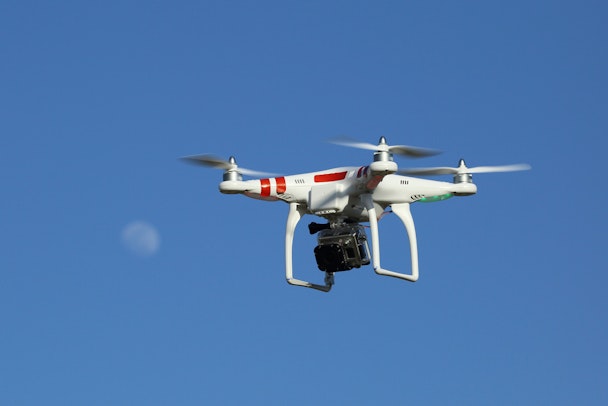Drones face stricter measures to counteract potentially 'catastrophic' aircraft collisions
Drones weighing more than 250g will now have to be registered in the UK, while users will have to pass a safety awareness test, to counteract potentially “catastrophic” airline collisions.

Drones face stricter measures in light of aircraft disruption
The Government announced the new rules as drone-related incidents reported to the police have rapidly grown, with 3,456 reports of misuse last year.
While there has not been a significant accident involving a drone yet, in the first half of the year there were 48 near-misses between planes and unmanned aircraft reported.
Flights had to be diverted at Gatwick earlier this month when a drone was spotted on a flight path, while in May a pilot was forced to take evasive action when a drone came within 60 feet of his plane as he prepared to land in Edinburgh.
Pilots have warned that the situation is potentially "catastrophic". According to Brian Strutton, the general secretary of the pilots' union BALPA, drones have the ability to shatter an aircraft windshield or helicopter rotor.
"We hope that urgent Government action will now follow to control this proven threat before there is a disaster and lives are lost,” Strutton said.
There have also been incidents of drones being used to deliver drugs to prison inmates.
There is no time frame or firm plans as to how the new rules will be enforced and the Department of Transport admitted that "the nuts and bolts still have to be ironed out".
As part of the registration process, users will have to pass a drone safety awareness test which will involve potential flyers having to "prove that they understand UK safety, security and privacy regulations", the department said.
At present, only commercial drone operators have to notify regulators and complete a training course in order to use the flying vehicles.
The plans also include the extension of geo-fencing, in which no-fly zones are programmed into drones using GPS co-ordinates, around areas such as prisons and airports.
Aviation minister Lord Callanan said the regulations will "prioritise protecting the public while maximising the full potential of drones".
"Increasingly, drones are proving vital for inspecting transport infrastructure for repair or aiding police and fire services in search and rescue operations, even helping to save lives," he said. "But like all technology, drones too can be misused."
Drone maker DJI said it was in favour of the measures.

